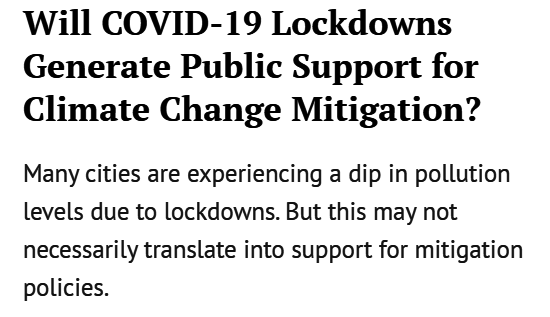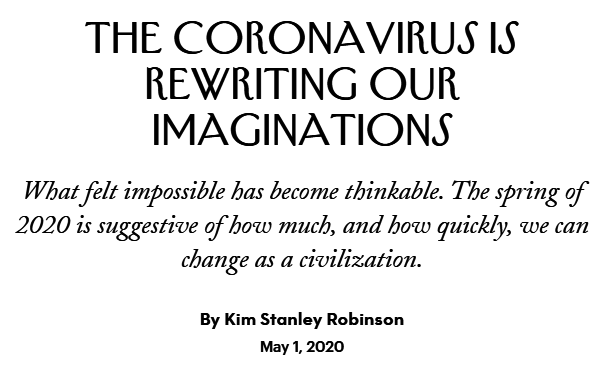The one great pressing Question
Sunday, May 17th, 2020[ by Charles Cameron — I wish to acknowledge the impact Prem Rawat has had on my thinking during the course of this lockdown ]
.
A sequence of headlines says it all:
The Question:
**
Ouch:
**
To be Specific:
**
The Opportunity:
**
The Answer:
Science gives a patina of the factual, the tested, the proven, the real, and fiction allows both the extrapolation of strict science to future possibilities (Larry Niven, Ringworld, if I remember correctly), but also the intrusion of the magical (RA Lafferty, Narrow Valley).
The question is both obvious and pressing, but of all those writing about it, and the essays above are a decent sample, Kim Stanley Robinson is the one with heart and mind most attuned to possible futures — so of all the above essays, hers is the one I’d trust, and would offer you for your consideration. Her thesis, in the small italic print above:
What felt impossible has become thinkable. The spring of 2020 is suggestive of how much, and how quickly, we can change as a civilization.
Chew on that for a while.
**
I suspect this is likely to become a series: I’ve accordingly labelled it #1. This is just setting the scene.
**
A hint from Maa Ganga, the goddess of India’s most sacred river Ganges:
Deccan Chronicle, Coronavirus caused lockdown is healing the holy Ganga
The ganga, which flows through five states and is most polluted in Varanasi — Prime Minister Narendra Modi’s constituency — is now regaining all its lost glory, slowly. Pollution in the sacred river has come down by over 40 per cent and is likely to increase as the lock down continues across the country. Though successive governments including the present Modi government spent thousands of crores in cleaning the ganga and still failed miserably, looks like nature always finds its own way of healing.
**
Sources:
Offered here so you can read in detail according to your interests and time
availability:
Adam Gopnik, Will the Coronavirus Pandemic Really Change the Way We Think? John Cassidy, Will the Coronavirus Create a More Progressive Society or a More Dystopian One? Rama Mohana R. Turaga, Will COVID-19 Lockdowns Generate Public Support for Climate Change Mitigation? Siddharth Goel, Public Awareness of the Pandemic Is Our Chance to Enforce Better Climate Plans Kim Stanley RobinsonThe Coronavirus Is Rewriting Our Imaginations







